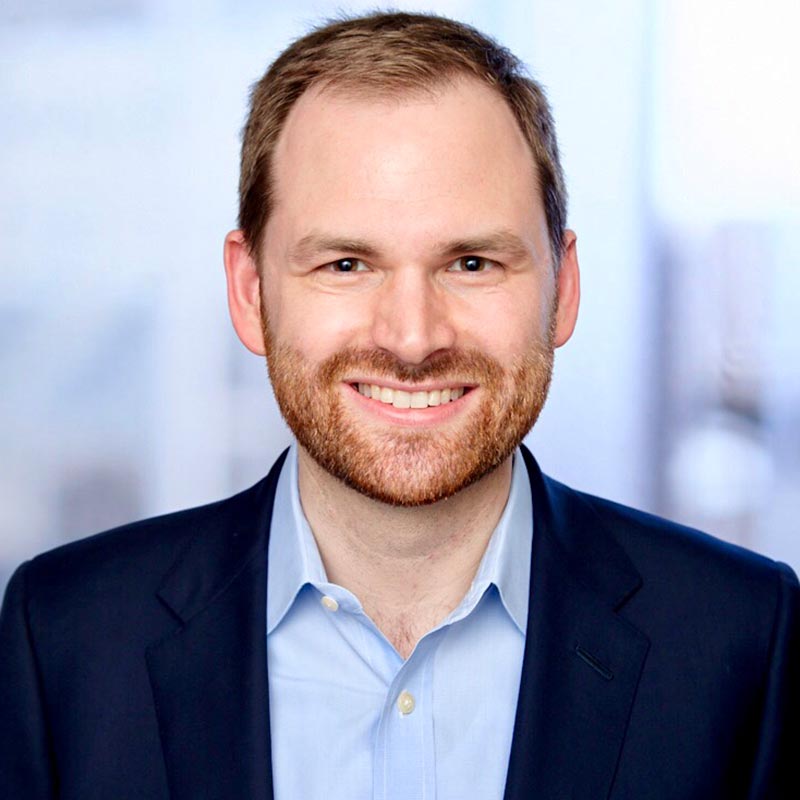
Photo by Sanga Park on iStock
Do the results of the U.S. election change the role of the Chief Sustainability Officer? Based on a new round of interviews with sustainability leaders, the collective answer is: somewhat, but not as significantly as you might expect.
BSR recently published a new report: The CSO at a Crossroads: Three Paths Forward for Sustainability Leaders. Based on interviews with more than 30 Chief Sustainability Officers (CSOs), we charted the evolution of the role and described three archetypes: The Steady Manager, the Integrated Strategist, and the Transformative Change Agent.
The results of the US election raised questions about how dramatically the landscape for business and sustainability might shift. To explore this, BSR spoke to over ten participants from the original study—along with ongoing conversations with members—to see whether the election changed their perspective about their role.
Taken together, the interviews point to the resilience of the sustainability function and the business-savvy of sustainability leaders. This does not make the role easy; on the contrary, many CSOs feel their role and strategies are under heavy scrutiny, with reanimated arguments about the business case.
One CSO characterized their current role as “the defender-in-chief, speaking with C-suite executives almost every day” to retain commitments to company goals.
Yet multiple CSOs noted that they had already substantially adapted to address the backlash against sustainability. As one CSO declared: “It’s hard to say how I will change my day-to-day because I’ve already changed it.” Every CSO interviewed confirmed that the direction of the report, and the relevance of the three archetypes, still hold true, but they are now adapting to a changed political context.
CSOs will continue to emphasize business fundamentals such as regulations, business resilience, and performance
The CSOs we spoke with consistently pointed to foundational reasons why sustainability is critically important, citing the role of sustainability in compliance with global regulations, building business resilience, and creating positive impact on business performance.
For global companies, non-US markets are also essential. One CSO observed that their company “is more focused on EU and UK regulations—the outcome of the US elections has not really changed any of these priorities.” Another emphasized “a focus on metrics and numbers and business impacts. That hasn’t changed, and is the way to keep the work grounded.” The focus on business impacts may extend to highlighting the role sustainability can play in job creation and quality, such as through investments in new technology. That framing may hold appeal to executives as well as policymakers.
Commenting that there may have been “role creep” in recent years, one leader urged: “We need to give everyone a course on materiality 101 and get CSOs to be vigilant on what is material to their business. If they maintain that focus, then all we are talking about is business viability and profitability.”
Companies will continue to show caution, especially on commitments and communications
At the same time, interview subjects anticipate a reduction of voluntary commitments and communications. “Communications around performance won’t change, but any additional communications will likely cease. We’re not looking for bold. We don’t want to be a target. We’re meeting what’s required by the law, but that’s it.”
Some executives may also be looking for an “excuse” to reduce resources and exposure on sustainability: “I’m worried about the skeptics using the election as a reason not to do voluntary things.” This concern is especially potent at companies where sustainability is less embedded.
CSOs expect uncertainty and risk in particular areas including DEI, geopolitics, the business operating environment, and employee protections
CSOs cited several areas of greater uncertainty and risk of negative impacts post-election, including:
- DEI: “DEI as DEI will change,” explained one leader. Companies are likely to pivot to a broader consideration of “inclusion” and “belonging,” putting existing DEI efforts (like employee resource groups) in jeopardy and potentially affecting hiring, retention, and development of diverse talent. They may also innovate with aspects of diversity that are not tied to race or gender, such as disability, neurodivergence, or economic mobility.
- Geopolitics, Supply Chains, and Trade: A potential global retreat from cooperation and open trade (exemplified but not exclusive to the US elections) threatens global action on climate change. It also imperils efforts to build more resilient and sustainable supply chains. There is also renewed concern that intergovernmental processes, such as COPs, will not succeed, imperiling progress and adding uncertainty.
- Focus on Industry-Specific Matters: Many of those interviewed said their business was much more focused on the industry-specific risks they expect from the new context, rather than broader attacks on sustainability issues. This will include uncertainty caused by deregulation, as well as product-specific attacks on a range of issues from vaccines to food ingredients to new technologies or renewable energy.
- Employee Protections and Benefits: Threatened rollbacks in areas like LGBTQ rights and reproductive rights, paired with aggressive action to restrict immigration and increase deportation, may create direct harms to employees and their families. Companies would then be forced into rapid response to help employees, retain trust, and respect human rights.
CSOs can leverage compliance, foresight, and expanded stakeholder engagement to build resilience and maintain impact
“Sustainability is not a four-year political term. We’re here for the long term. Every sustainability person is thinking about 2030 as well as 2040 and 2050.”
Our interviews don’t point to a major revision to BSR’s three archetypes for future CSOs, yet the incoming administration means that a key aspect of all sustainability leadership roles will be to defend against backsliding. The urgency, scale, and impact of current challenges will require CSO leadership to reassert ambition in strategic integration, innovation, and transformative change to create a just and sustainable world.
The interviews do point to three recommendations for CSOs to build resilience and maintain meaning and impact in their roles over the next four years:
1) Leverage compliance to achieve impact. Many global companies are now required to develop a double materiality assessment (CSRD), a robust approach to emissions tracking and climate risk management (California laws, ISSB, etc.), and human rights diligence (CSDDD). Compliance also requires professionalization and integration of sustainability to maintain appropriate governance, rigor, and investment—all of which serve as a bulwark to pull back. Moreover, companies are not obliged to “work to the rule,” and focus only on narrowly defined compliance; they can take a broader, more intentional approach to the spirit of the rules/laws. Compliance may define the “floor” for businesses, but it is not designed to establish the “ceiling.”
2) Prepare for uncertainty. For a wide range of reasons, including the US elections and economic, geopolitical, technological, and cultural volatility, companies will face many uncertainties in the years ahead. CSOs will benefit from futures thinking, simulations, and scenario analysis that illustrate and elevate the relevance of sustainability in understanding a changing world. Longer-term foresight is also a helpful way to put current headlines into the context of sustainability realities (like climate risk) and future “snapback.” A good place to start is BSR’s work on “Between Two Worlds: Sustainable Business in the Turbulent Transition.”
3) Reimagine stakeholder engagement. More effective stakeholder understanding and engagement can help companies better anticipate and navigate newly volatile topics such as health, geopolitics, political risk, and the links between sustainability and employment.
Employees will be an important stakeholder group, as many of the biggest risks of the coming years will show up for companies via employee impacts in areas like economic security and mobility, DEI, reproductive rights, and immigration. Companies will benefit from more internal stakeholder listening and relationship building, and advance preparation to respect human rights. Finally, the election results raised alarms that central tenets and language of the sustainable business movement may not be connecting with key audiences and intended beneficiaries.
CSOs (and the field more broadly) may benefit by going to less “comfortable” settings and reaching out to stakeholders who feel left out of the movement. As one leader observed, “None of our sustainability slogans speak to how difficult it is to be middle class in America.”
“We need to reflect on how we talk about sustainability to get away from the jargon and go to topics that the average person will care more about. We’re talking to ourselves too much and we’ve missed the plot.”
BSR members can access new guidance in all of these areas in 2025.
While these tactics may not be sufficient to meet the urgency and scale of global challenges, they may help sustain and advance progress through a challenging period.
For amid the realism, uncertainty, and caution expressed by CSOs, we were once again struck by their determination, acuity, and optimism.
CSOs continue to work every day to build coalitions that create stronger companies, thriving economies, and a just and sustainable world. As one CSO commented: “We can’t change society with just one political party—we need to win over bipartisan audience and figure out a way to bring people with us.”
Topics
Let’s talk about how BSR can help you to transform your business and achieve your sustainability goals.









